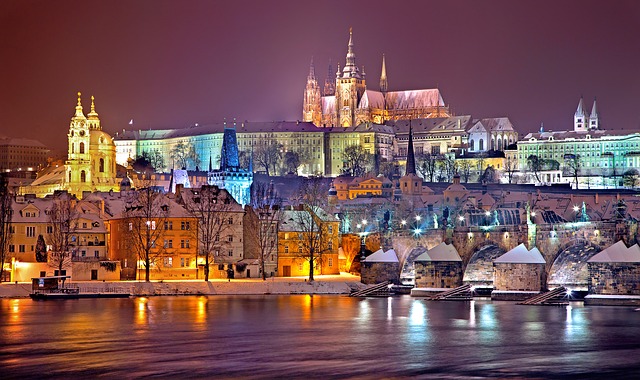Pro-EU academic battles eurosceptic in Czech presidential election

Voters in the Czech Republic go to the polls this weekend to elect their next president. Incumbent Milos Zeman, winner of the first round of the two-stage election earlier this month, faces a strong challenge from Jiri Drahos, a pro-western centrist and the former head of the Academy of Sciences.
Czech presidents hold limited executive powers but have the authority to appoint prime ministers, judges, and members of the central bank. The country is run by the government chosen and led by the elected prime minister, currently populist billionaire Andrej Babis, Zeman’s ally.
President Zeman is a vocal critic of the EU, having accused the union many times of imposing bureaucratic rules on the country. Whereas, Jiri Drahos is a liberal independent, a pro-European in a country where opposition to the EU has been growing.
The Czech Republic is a member of the Visegrad Group, a regional alliance of four central European nations (alongside Hungary, Poland, and Slovakia), which in recent years has moved away from progressive European integration toward a policy of protecting native-born citizens.
In 2015, EU member countries agreed to relocate 160,000 refugees across the member states, but the Visegrad Group has relocated only 28 refugees in total out of a combined quota of 11,069.
Both candidates oppose the quota scheme, but while Zeman’s campaign portrays Drahos as someone who would open the borders, using the slogan: “Stop the immigrants and Drahos. This country is ours,” Drahos calls for a sober and calm reaction to the European migration crisis, saying: "We have to solve this as Europe.”
In his commentary on refugee resettlement in the EU, Tim Hatton highlights three key elements to policy reform. “The first is to radically reduce unauthorized entry to Europe by land and by sea…The second is to embark on a substantial resettlement program….The third element is to agree to a distribution scheme for resettling refugees which equalizes the burden in different European countries.”
Jesús Fernández-Huertas Moraga asks whether market mechanisms can help solve the refugee crisis in his IZA World of Labor paper. He believes It will take more than one policy to solve the escalating humanitarian and political crisis currently facing Europe and quotas are just the first step in the process. “Step two is a matching scheme: In the same way that students are matched to schools, refugees can be matched to countries.” The third step is a compensation mechanism. He says that “countries should be given the opportunity to contribute to the provision of refugee protection in one of two ways: physically (actually receiving the assigned refugees) or financially (paying other member states to receive their assigned refugees).”
A poll on Monday put Drahos’ support at 47%, narrowly ahead of Zeman with 43%, with the remaining 10% undecided. As of now, the election race is too close to call.
Read more articles on how migration policy affects the labor market.